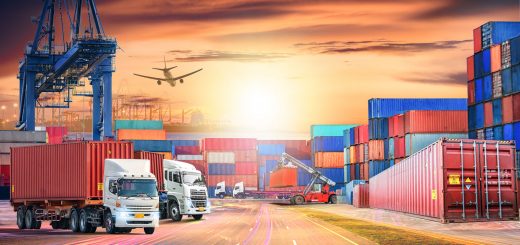The Impact of Covid-19 on the Global Economy
From Global Supply Chain, Religious gatherings, schools, manufacturing industries, retail stores, recreation centres, aviation, and shipping to public shops, none is spared as the impact of Covid-19 pandemic on the global economy continues to bite harder. This could cost the world 2.7 trillion dollars as global GDP drops to 1.2% Year on Year (Bloomberg News). Industrial sales have dropped by over 80%, while global passenger traffic has dropped by more than 90%.
The drastic reduction in oil prices has stimulated a sense of insecurity and panic across the globe, and here in Nigeria, it has precipitated lower dollar revenue, a shortage of dollars due to reliance on oil revenue and a direct threat to investment in the oil sector if the situation persists for a longer period of time. Investors are holding their money; the dollar is now scarce; the naira has been devalued, bringing about widespread pessimism and fear of another economic recession shortly after exiting one.
Under-developed countries (Like Nigeria) are worse hit by a stronger dollar FOREX. While governments in most are cutting taxes and reducing interest rates, the story is not the same elsewhere.
Economic Impact of Covid-19 On Top Global Economies

Source: RaboResearch, IMF, Macrobond
The graph above shows that the leading global economies are also being severely hit, while the threat of a global recession looms large.
Impact of Covid-19 on the Global Economy
Economic Impact of Covid-19 On Top Global Logistics Industry
- Cargoes are stuck in several port terminals across the world and are subjected to various levels of deterioration.
- Notable decrease of volumes at most seaport terminals – especially relating to activities requiring a significant number of human clusters.
- The overall situation regarding the operational status of airports, truckers and customs clearance in China are gradually returning to normal and the backlog has pilled-up to the sky.
- Lead time and applicable rates have become unpredictable
- Resort to alternative routing is a viable alternative in the event of stringent cargo restrictions on some global routes, if possible.
Unemployment and income loss
The pandemic has resulted in job losses and income loss for many individuals and households. This has had a ripple effect on the economy, as reduced consumer spending and decreased demand have further contributed to economic contraction.
Disruptions to supply chains
The pandemic has disrupted global supply chains, causing shortages of goods and raw materials in many industries. This has led to increased costs for businesses and reduced productivity, which has further contributed to economic contraction.
Reduced international trade
The pandemic has led to a decline in international trade, as travel restrictions and border closures have made it more difficult for businesses to operate across borders. This has had a significant impact on many industries, including tourism and hospitality.
Government stimulus and support
Governments around the world have implemented stimulus packages and other measures to support businesses and individuals affected by the pandemic. While these measures have provided some relief, they have also increased government debt and may have long-term consequences for the economy.
Some Impact of Covid-19 On the Nigerian Logistics Industry
- The resumption of activities in some Chinese ports and the processing of container backlogs will lead to a surge for forwarders, and we must plan for that post-pandemic surge.
- Volatile shipping rates – Shipping rates have become extremely volatile
- Skeletal airfreight services due to lock-down by most air cargo carriers
- High demand and inflow of essential commodities like food, medical and pharmaceuticals.
- Slower cargo transit from the origin is the order of the day
- Restrictions on cargo export to Europe due to the widespread lockdown, but essential or emergency cargoes are permitted to be airfreighted from many parts of the world.
- Delay in service delivery was further worsened by the presidential order that all ships must stay at sea for 14 days before they berth at Nigerian ports, just to ensure that all crew members are cleared of the Covid-19 disease.
- Drastic reduction in LCL (Less than Container Load) volumes due to lock-down in many LCL hubs
- The dollar value of import duties will not be spared following CBN’s devaluation of the naira and the volatility of the current FOREX market.
As enormous as the impact of Covid-19 on the global economy may have been, studies have shown that the world may take a full quarter or two to recover from it if it ends in April and when it does, the rebound will be great and will herald a new era of global economic prosperity. If this global menace goes beyond April, the aftermath will determine what will follow, and we hope it will be in the best interest of humanity.



